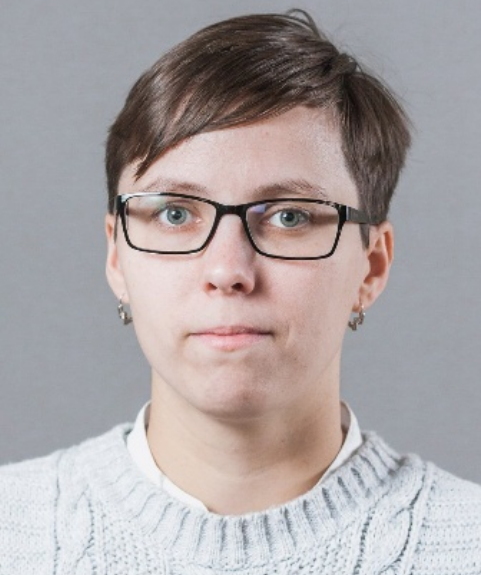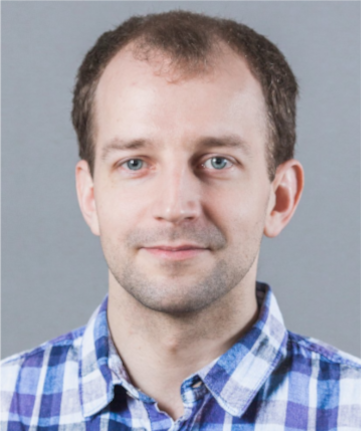What is FatResCon?
FatResCon is an ERC Synergy Grant project funded by the European Research Council that aims to uncover the microstructural origins of concrete fatigue and develop predictive tools that enable the design of durable, eco-efficient infrastructure with extended service life.
ERC funding: 9,993,698 € over 72 months, start date: June 1, 2025.
Grant agreement ID: 101167045.
Cordis project page
Concrete is the most widely used artificial material in the world, forming the backbone of our transportation and energy infrastructure, without any viable alternative. However, two seemingly disconnected problems arise. First, the essential ingredient of concrete - cement - accounts for 8% of global anthropogenic CO2 emissions, making it crucial to develop eco-efficient alternatives. One approach is to replace part of the traditional cement with locally available supplementary cementitious materials that have a lower carbon footprint. However, this introduces new challenges, as these eco-efficient concretes will differ from traditional materials, with long-term performance still largely unknown. Second, we are witnessing the overly fast deterioration of concrete infrastructure exposed to cyclic loading, often leading to costly and potentially tragic consequences. This process is accelerated by the subversive effects of concrete fatigue, acting as a gray eminence behind the scenes.
How to achieve durable and eco-efficient concrete infrastructure?
A multidisciplinary team of experts – Thomas Matschei (cement chemistry), Bernhard Pichler (multiscale material science), Miroslav Vořechovský (probabilistic computational mechanics), and Rostislav Chudoba (structural concrete) – is coming together to establish the missing link between the material science of eco-efficient concretes and the fatigue life of key transportation and energy infrastructure.
The goal of the Synergy Grant project FATRESCON is to decode the microstructural origins of concrete fatigue and to predict its impact on the structural lifespan. By formulating new theoretical concepts and combining them with innovative computer simulations and experimental protocols, the research team will underpin guidelines for designing durable structures with extended service life using the next generation of eco-efficient concretes, promoting their adoption in the construction sector.
Our Research Teams
The Fatrescon project brings together four research teams from leading European institutions. Each group focuses on a crucial aspect of concrete fatigue research — from experimental mechanics and microscopy to modeling and chemical analysis. Together, we form a multidisciplinary consortium that bridges material science, numerical simulations, and real-world infrastructure applications.
Institute of Structural Mechanics, Brno University of Technology, Czechia
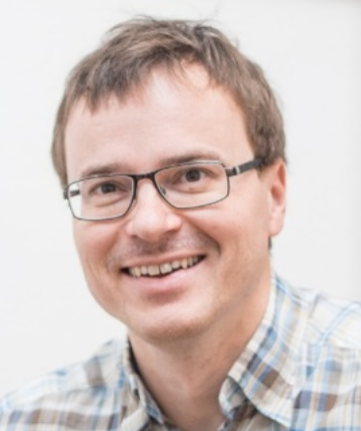
Prof. Miroslav Vořechovský
Corresponding Principal investigator (stm Team Leader)
Personal website
stm Team members
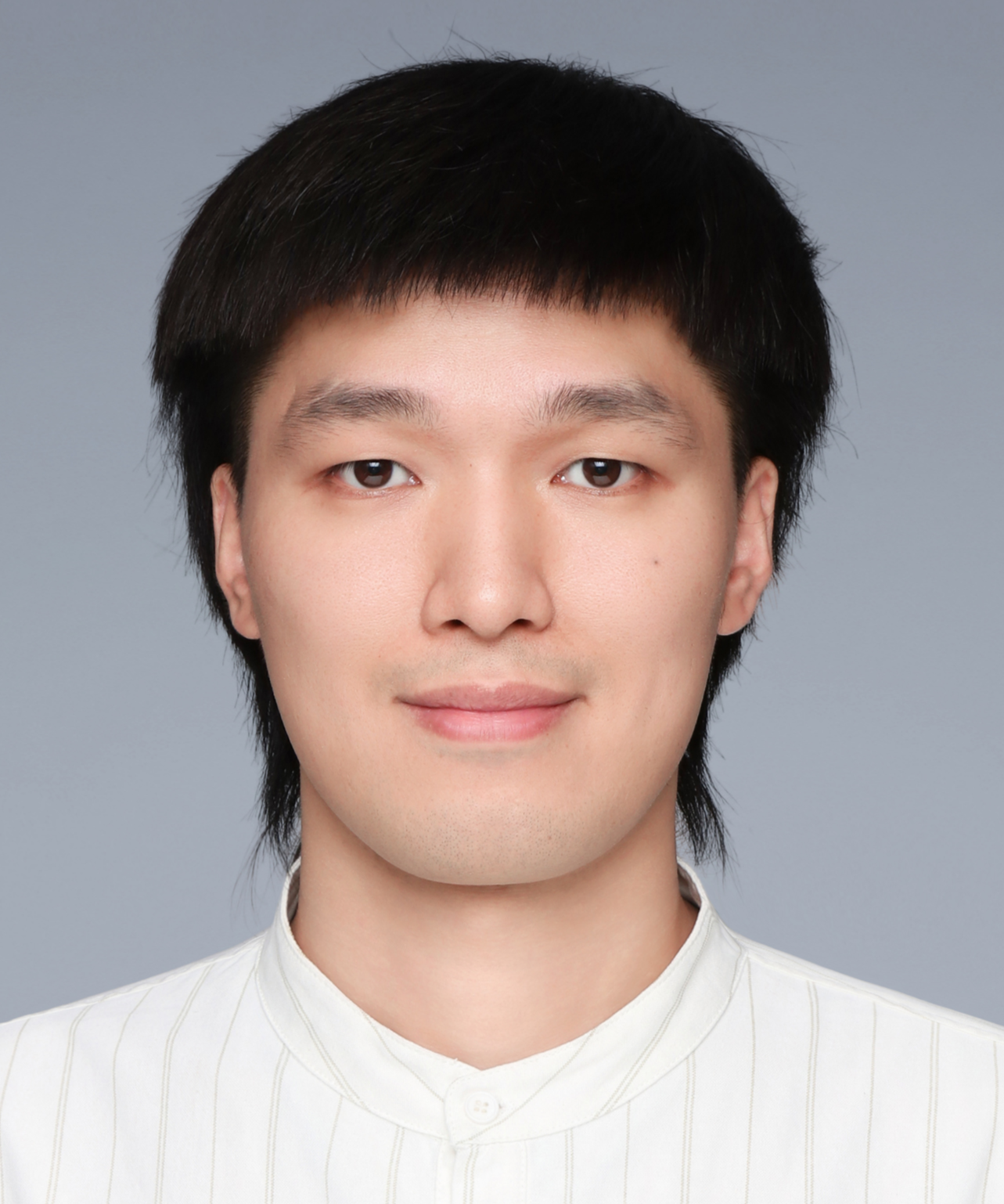
Yue Li, Ph.D.
Data-driven reduced-order modeling supported by machine learning (Project 11)
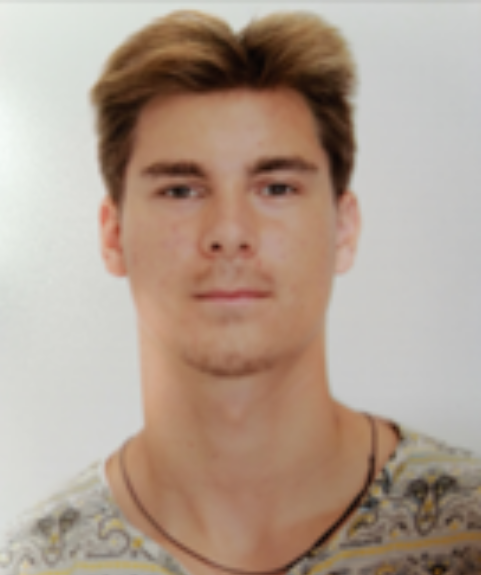
Bc. Adam Sklenář
Mesoscale discrete modeling of the representative dissipative process zone (Project 13)
Personal websiteInstitute of Structural Concrete, RWTH Aachen University, Germany
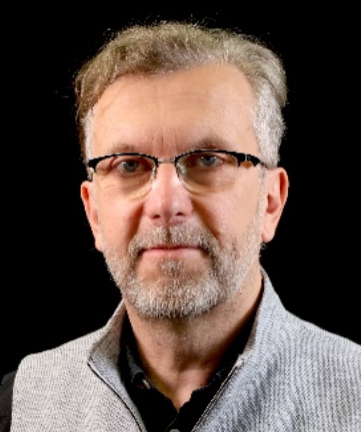
Prof. Rostislav Chudoba
Principal investigator (imb Team Leader)
Personal website
imb Team members
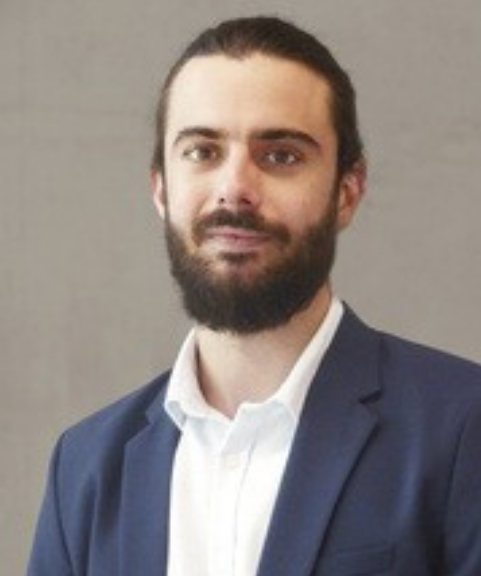
Mario Aguilar Rueda, M.Sc.
Physics-based reduced-order concrete fatigue models (Project 16)
Personal website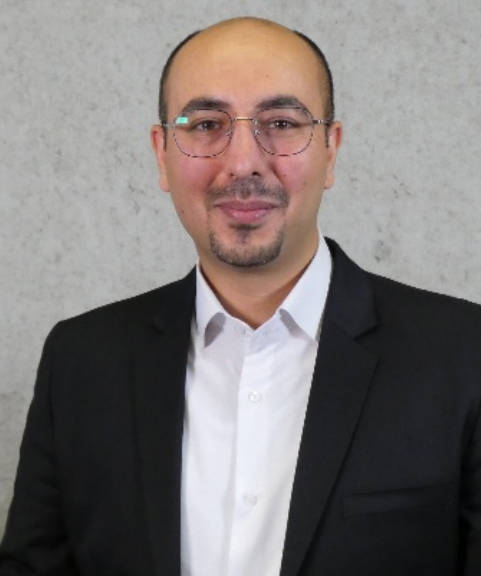
Ahmad Delpasand, M.Sc.
Upscaling and regularization as the basis for macroscale fatigue modeling (Project 14)
Personal website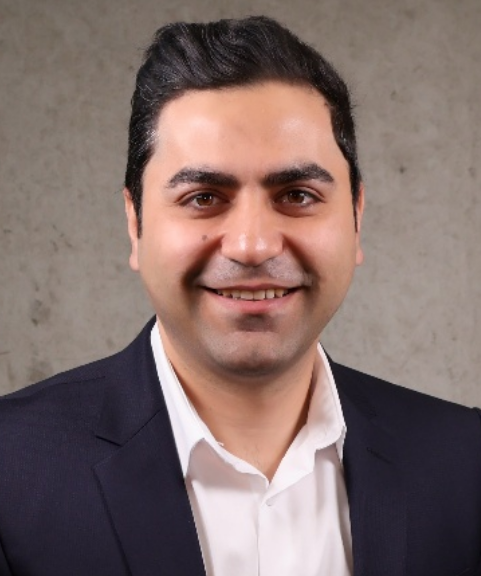
Soheil Esfandiari, M.Sc.
Innovative experimental testing of material degradation under fatigue loading (Project 15)
Personal websiteInstitute of Building Materials, RWTH Aachen University, Germany
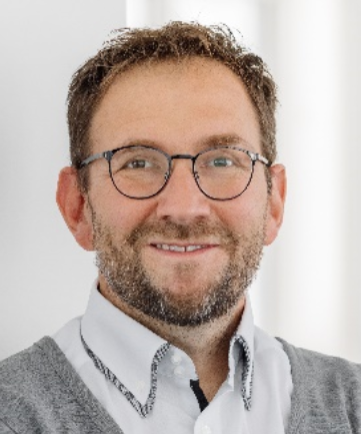
ibac Team members
Lupesh Dudi, M.Sc.
Thermodynamic modeling of the phase evolution of eco-efficient binders (Project 3)
Personal websiteJulian Hübner, M.Sc.
Characterization of the microstructure and mineralogy changes of eco-efficient binders (Project 1)
Personal websiteInstitute for Mechanics of Materials and Structures, TU Wien, Vienna, Austria
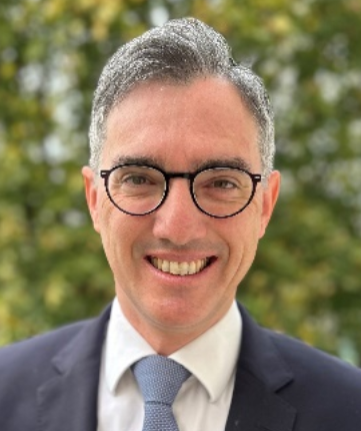
imws Team members
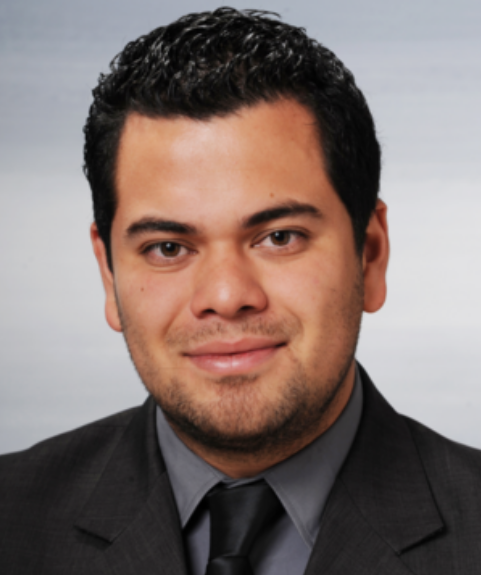
Dipl.-Ing. Dr.techn. Luis Haroldo Zelaya Lainez
Nano/microindentation of eco-efficient concretes (Project 5)
Macroscopic mechanical testing of eco-efficient cement pastes and concretes (Project 6)
Personal website
Dipl.-Ing. Johannes Zierke
Nano/microindentation of eco-efficient concretes (Project 5)
Personal website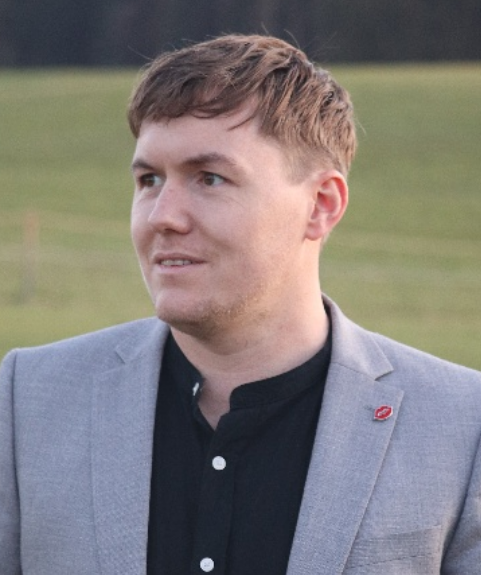
Dipl.-Ing. Stefan Winkler
Macroscopic mechanical testing of eco-efficient cement pastes and concretes (Project 6)
Personal website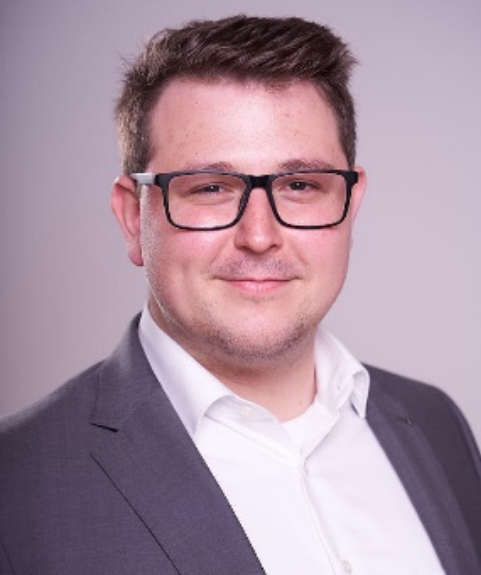
Dipl.-Ing. Maximilian Sorgner
Multiscale modeling of time-dependent behavior of mature eco-efficient cement pastes (Project 8)
Multiscale modeling of deterioration of mature concretes subjected to mechanical loading (Project 9)
Personal website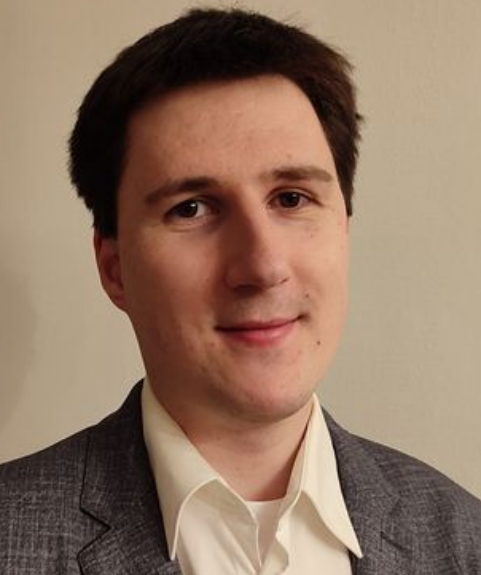
Dipl.-Ing. Lukas Seeliger
Multiscale modeling of time-dependent behavior of mature eco-efficient cement pastes (Project 8)
Personal websiteResults
Publications
bib
@article{LiVor:DMDChlor:CACAIE:25,author = {Yue Li and Miroslav Vo{\v{r}}echovsk{\'{y}} },
title = {Data-driven dynamic mode decomposition framework for spatio-temporal prediction of concrete chloride ingress},
journal = {Computer-Aided Civil and Infrastructure Engineering},
publisher = {Wiley},
volume = {40},
number = {31},
pages = {6305--6323},
year = {2025},
issn = {1467-8667 (1093-9687)},
doi = {10.1111/mice.70161},
}
Conferences
Lorem, ipsum dolor sit amet consectetur aaaadipisicing elit. Moasssssssssllitia dolore iste rerum tempora. Reiciendis voluptates eius at earum magnam, veritatis est rem? Architecto, aliquam aperiam! Nemo molestias minus distinctio corrupti.
Seminars and Workshops
Lorem, ipsum dolor sit amet consectetur aaaadipisicing elit. Moasssssssssllitia dolore iste rerum tempora. Reiciendis voluptates eius at earum magnam, veritatis est rem? Architecto, aliquam aperiam! Nemo molestias minus distinctio corrupti.
Positions
Doctorate and PostDoctorate Opportunities in ERC Synergy Grant
We are seeking highly motivated graduate students and PostDocs to contribute to our ERC synergy project FATRESCON – concrete matrices for high-cycle fatigue eco-efficient infrastructure. You will be part of an international, multi-disciplinary team of 22 researchers at RWTH Aachen University, Brno University of Technology, and TU Wien (Vienna University of Technology) to investigate the nano- and microstructural origins of high-cycle fatigue of concrete in order to predict the long-term performance of engineering structures.
Candidates should be passionate about science, open-minded, communicative, creative, and eager to engage in an interdisciplinary ecosystem consisting of experimentalists, theoreticians, and computer simulation experts. They should demonstrate persistence in addressing challenges associated with unsolved problems and show strong commitment to the mission of the ERC Synergy Grant project.
Our mission
Concrete is the most widely used artificial material in the world, forming the backbone of our transportation and energy infrastructure, without any viable alternative. However, two seemingly disconnected problems arise. First, the essential ingredient of concrete - cement - accounts for 8% of global anthropogenic CO2 emissions, making it crucial to develop eco-efficient alternatives. One approach is to replace part of the traditional cement with locally available supplementary cementitious materials that have a lower carbon footprint. However, this introduces new challenges, as these eco-efficient concretes will differ from traditional materials, with long-term performance still largely unknown. Second, we are witnessing the overly fast deterioration of concrete infrastructure exposed to cyclic loading, often leading to costly and potentially tragic consequences. This process is accelerated by the subversive effects of concrete fatigue, acting as a gray eminence behind the scenes. Within the FatResCon project, we will establish the missing link between the material science of eco-efficient concretes and the fatigue life of key transportation and energy infrastructure.
Join us!
Your research will be guided by a multidisciplinary team of experts: Thomas Matschei (cement chemistry), Bernhard Pichler (multiscale materials science), Miroslav Vořechovský (probabilistic computational mechanics), and Rostislav Chudoba (structural concrete).
How to apply
We currently have several open positions and are actively recruiting. Interested candidates should submit electronic applications in English to positions@fatrescon.eu, including:
- Curriculum vitae (CV) detailing your research experience and additional relevant information (e.g., awards, internships, qualifications).
- Letter of motivation (maximum one page), including the specification of up to two open positions within the FATRESCON project for which you are applying.
- Bachelor's and Master's degree certificates, including transcripts of academic records (in English).
- Copy of your Master's or Doctoral thesis.
- Recommendation letter from a supervisor.
- Link to a 5-minute video, in which you discuss your motivation, highlight key aspects of your Master's or Doctoral thesis, and explain how you could contribute to the project(s) specified in your letter of motivation.
Applications are welcome starting immediately and positions will remain open until they are filled.
Job listing
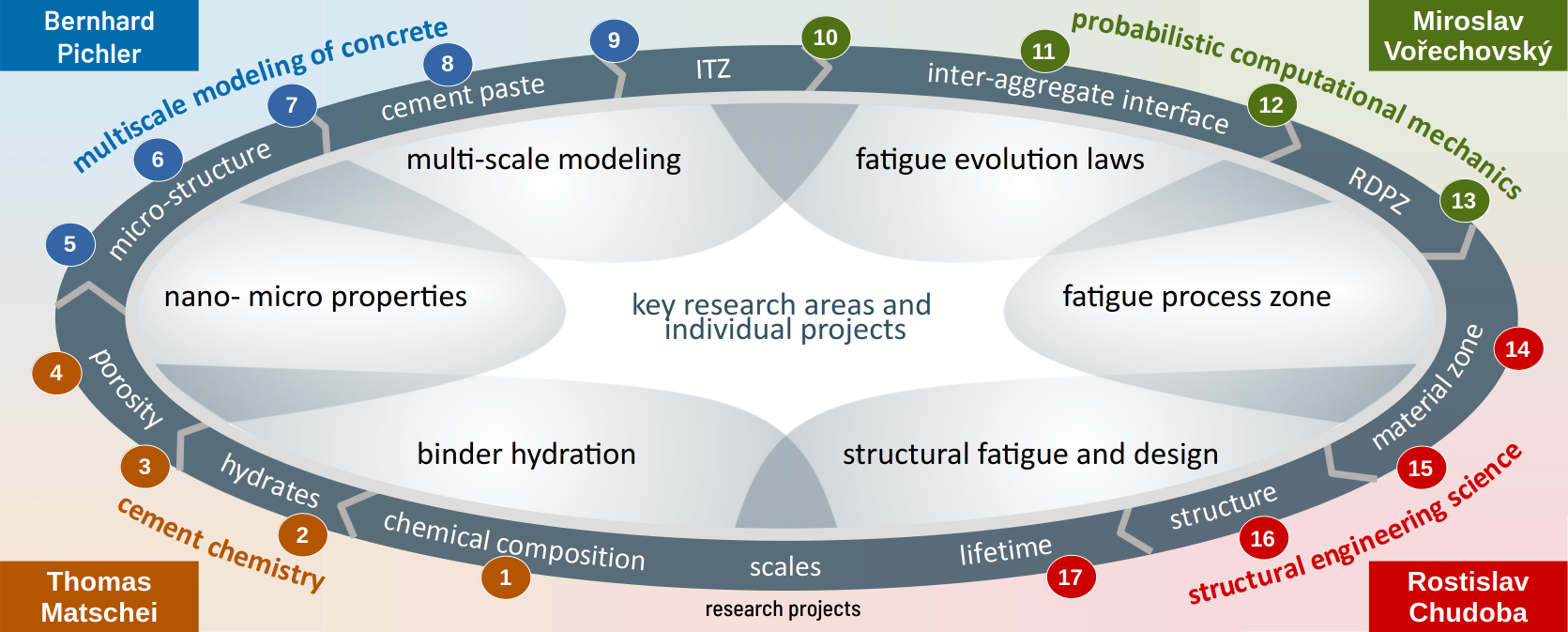
| No. | Project name (position) | Status | Earliest Start | Host institution, general profile |
|---|---|---|---|---|
| 1 | Characterization of the microstructure and mineralogy changes of eco-efficient binders (PhD)
Detail
This PhD project investigates the hydration process affecting the microstructural development and micromechanical properties of hardened eco-efficient binders beyond 90 days, focusing on the relation between the evolution of microstructural features e.g. porosity and hydrate phase assemblage with internal water activity. The PhD student will use a novel SEM image analysis approach to study hydrate phases and binder constituents while varying internal saturation states. The goal is to provide detailed insights for model calibration, enhancing understanding of long-term hydration reactions in CO2-reduced binders as influenced by water activity. Expected skills: We are looking for a highly motivated materials scientist, mineralogist, geochemist or a civil engineer with good background on materials science or similar, with an interest in cementitious materials. A good know how on experimental characterisation techniques such as QXRD, SEM image analysis, etc. is required. Synergistic interactions: Projects 2, 3, 7, 8 You will learn: Advanced microstructural characterisation techniques and know how of the microstructural evolution of hydrating eco-efficient cement and concretes |
Closed |
ibac RWTH Aachen University (Germany) matschei@ibac.rwth-aachen.de
Institute description
The Institute for Building Materials Research (ibac) at RWTH Aachen University is looking for highly motivated PhD candidates to work at the interface between Materials Science, Chemistry and Civil Engineering. The team at ibac focuses on research on predicting the role of hydration with a focus on the impact of load dependent water redistribution as function of binder chemistry.
Ideal candidate
Ideal candidates Enthusiasm to explore new pathways in concrete materials science and an interest on the governing physico-chemical features is a precondition. Previous experience in related disciplines will be highly appreciated. Engineers with a Master’s degree in Materials Science, Inorganic / Physical Chemistry or Chemical Engineering, as well as individuals with a quantitative science background in physics or chemistry with a main interest in the future of cement production are encouraged to apply. |
|
| 2 | Distribution of water in hydrated eco-efficient cements (PhD/PostDoc)
Detail
The PhD study aims to develop a novel approach based on 1H NMR to examine water distribution in eco-efficient binders, focusing on pore structures and hydrates. The student will develop a setup for real-time moisture within the hardened binder microstructures under cyclic stress, monitoring water movement across different pore types. The research will explore the impact of hydrate phases on moisture distribution and incorporate complementary techniques like X-ray diffraction (XRD) to provide a detailed water balance of hydrated binders, enhancing understanding of their visco-elastic properties. Expected skills: We are looking for a physicist, materials scientist or engineer or similar with interest on 1H NMR studies. Synergistic interactions: Projects 1, 3, 8 You will learn: Advanced 1H NMR techniques and know how of the microstructural evolution of hydrating eco-efficient cement and concretes and the role of water. |
Open | 10/2025 | |
| 3 | Thermodynamic modeling of the phase evolution of eco-efficient binders (PostDoc)
Detail
A PostDoc will develop a novel thermodynamic and kinetic hydration model that predicts phase assemblages, mass balances, and water distribution in binder systems. This model will utilize chemical affinity relations and a structurally consistent approach for water distribution within hydrates. The candidate will calibrate the model using excess enthalpies of mixing from DVS and sorption calorimetry, and validate it with 1H NMR data. The project aims to enhance our understanding of eco-efficient binders' physico-chemistry through comprehensive mass and water balance insights. Expected skills: We are looking for a highly motivated civil engineer with good background on materials science, a materials scientist, mineralogist or geochemist or similar with an interest in cementitious materials. Know-how on thermodynamic modeling of solid-aqueous systems is a pre-requisite. Synergistic interactions: Projects 1, 2, 7, 8, 1 You will learn: Thermodynamic Modelling and its link to experimental validation with help of know how of the microstructural evolution of hydrating eco-efficient cement and concretes incl. the role of water. |
Closed | ||
| 4 | Characterization of microstructural properties of the ITZ (PhD)
Detail
A PhD candidate will investigate the microstructural and mineralogical changes of the interfacial transition zone (ITZ) between aggregates and paste, as well as steel and paste of selected eco-efficient binder systems. Synthetic ITZ samples will be assessed in details by means of mechanical, physical and chemical properties. SEM-EDX analyses will provide insights into microstructural evolution. This project aims to generate missing data on the ITZ of different eco-efficient concretes' to enhance upscaling efforts as input for micromechanical models. Expected skills: We are looking for a highly motivated civil engineer with good background on materials science, a materials scientist, mineralogist or geochemist or similar with an interest in establishing links between mechanical and physico-chemical properties of cementitious systems. Synergistic interactions: Projects 5, 7, 8, 10, 13, 15 You will learn: Advanced microstructural characterisation techniques and know how of the microstructural evolution of hydrating eco-efficient cement and concretes. |
Open | 10/2025 | |
| 5 | Nano/microindentation of eco-efficient concretes (PostDoc) | Closed | - | imws TU Wien (Austria) bernhard.pichler@tuwien.ac.at
Institute description
The Institute for Mechanics of Materials Structures (imws) at TU Wien is looking for highly motivated PhD candidates to work at the interface between Cement Chemistry, Materials Science, and Multiscale Mechanics. The team at imws performs research on predicting the relationship between nano- and microstructures of cementitious materials and their macroscopic mechanical properties. Therefore, enthusiasm to explore new pathways in innovative multiscale testing as well as in multiscale modeling of cementitious materials based on the versatile scale transition methods of continuum micromechanics; and an interest in interaction with colleagues specialized in Materials Science and Computational Chemistry is a precondition.
Ideal candidate
Ideal candidates shall be engineers with a Master’s degree in Civil Engineering, Materials Science, or Mechanical Engineering, and/or have a quantitative science background in physics with a main interest in testing and modeling of future cementitious materials. They should be experienced with and enjoy programming in numerical mathematics environments (e.g. Matlab) and have at least basic knowledge of the threedimensional theory of thermoviscoelastity. Knowledge in tensor calculus and continuum micromechanics is appreciated (but not mandatory). |
| 6 | Macroscopic mechanical testing of eco-efficient cement pastes and concretes (PhD) | Closed | - | |
| 7 | Multiscale modeling of early-age evolution of mechanical properties of eco-efficient cement pastes and concretes (PhD)
Detail
Chemically different cementitious binders develop specific microstructures. This results in a specific evolution of macroscopic mechanical properties such as the elastic stiffness, creep, and strength. The project is about modeling of microstructural evolutions of ecoefficient cement pastes and concretes, based on input from microstructural characterization, and upscaling of mechanical properties using methods of continuum micromechanics. These methods account for key properties of hierarchically organized microstructures including phase shapes, phase interaction, phase volume fractions, and mechanical phase properties. Expected skills: You should be experienced with and enjoy programming in numerical mathematics environments (e.g. Matlab) and have at least basic knowledge of the threedimensional theory of thermoviscoelastity. Knowledge in tensor calculus and continuum micromechanics is appreciated (but not mandatory). Synergistic interactions: Projects 1, 3, 4, 10, 14 You will learn: Advanced constitutive modeling, scale transition methods, and modeling of microstructure-macroproperty relationships of cementitious materials. |
Open | 9/2025 | |
| 8 | Multiscale modeling of time-dependent behavior of mature eco-efficient cement pastes (PhD) | Closed | - | |
| 9 | Multiscale modeling of deterioration of mature concretes subjected to mechanical loading (PostDoc) | Closed | - | |
| 10 | Discrete modeling of cement paste with ITZ and aggregates (PhD)
Detail
To achieve a deeper understanding of interactions among cement paste constituents, the PhD student will develop a discrete computational model incorporating an elasto-visco-plasto-damage constitutive law derived from thermodynamic potentials, explicitly controlling energy dissipation. This model will clarify the role of water in cyclic creep and microcracking within the interfacial transition zone (ITZ), where cracks initiate and propagate, eventually forming interconnected crack networks. The development of the model will leverage data obtained from other subprojects, aiming to simulate not only the behavior of hardened cement paste but also the thermodynamics of the hydration process. Additionally, the data will facilitate probabilistic upscaling of the developed micro-model to meso-scale interaggregate constitutive laws. Expected skills: Computational mechanics, programming experience, fundamental statistical knowledge. Synergistic interactions: Projects 4-9, 11-13 You will learn: Advanced constitutive modeling, methods for scale transition, and probabilistic approaches to strength characterization in heterogeneous materials. |
Open | 8/2025 | stm Brno University of Technology (Czechia) miroslav.vorechovsky@vut.cz
Institute description
The Institute of Structural Mechanics (stm) at the Faculty of Civil Engineering, Brno University of Technology, invites applications from highly motivated PhD candidates and Postdoctoral researchers interested in working at the intersection of computational mechanics, materials science, probability and reliability theory, uncertainty quantification, and data science. Our team specializes in modeling heterogeneous materials and quasibrittle composites, including probabilistic analyses of strength and structural reliability.
Ideal candidate
Ideal candidates should have an interest in applying rigorous constitutive modeling techniques and fundamental methods from probability theory and data science to study fatigue in concrete and reinforced concrete structures. Applicants should also possess experience with programming in compiled languages such as C or C++, as well as scripting languages like Python or MATLAB. We encourage applications from engineers with Master's degrees in Civil Engineering, Materials Science, or Engineering Science, as well as individuals with quantitative backgrounds in Applied Physics or Mathematics.. |
| 11 | Data-driven reduced-order modeling supported by machine learning (PostDoc)
Detail
In close collaboration with the PI, the local research group, and other subprojects, the PostDoc researcher will apply a combination of uncertainty quantification techniques and machine learning methods to develop efficient, data-driven, reduced-order models. These models will facilitate transitions across multiple spatial and temporal scales. High-fidelity models and datasets will be provided, encompassing hydration thermodynamics, multi-scale continuum descriptions, and discrete representations of cement paste and concrete. Leveraging these data, the researcher will perform spatial upscaling from discrete to continuum representations of dissipative fatigue processes within representative material zones. Ultimately, the project aims to capture essential patterns of crack evolution, from diffuse damage to localized cracking, alongside the dynamic nature of energy dissipation. Expected skills: Programming experience, fundamental knowledge of computational mechanics and nonlinear mechanics, statistics, and data science. Synergistic interactions: Projects 3, 9, 10-13, 14,16 You will learn: Advanced data science methods, reduced-order modeling, multiscale modeling techniques, and uncertainty quantification. |
Closed | - | |
| 12 | Probabilistic fatigue modeling (PhD)
Detail
The fatigue lifetime of concrete exhibits significant scatter arising from various sources of variability. The PhD student will analyze these sources and study how variability propagates through the mechanistic transformation of input random variables and random fields. High-fidelity numerical models and experimental data will be used to gain deeper insights into these processes and their dependencies on factors such as stress configurations (captured by reduced-order models), rate- and temperature-dependent phenomena, and material heterogeneity. Ultimately, the aim is to predict and extend the mean fatigue lifetime and reduce its variability. Additionally, the student will investigate methods to understand and control the spatiotemporal variability associated with concrete hydration processes. This research will be conducted in close collaboration with other subprojects within FATRESCON. Expected skills: Fundamentals of computational mechanics, programming, probability, and statistics. Synergistic interactions: Projects 10-13, 15,17 You will learn: Advanced probabilistic modeling of strength in heterogeneous materials and structural reliability assessment. |
Open | 8/2025 | |
| 13 | Mesoscale discrete modeling of the representative dissipative process zone (PhD)
Detail
The PhD student will utilize and further develop a discrete mesoscale model of concrete that explicitly resolves individual large aggregates. This model aims to simulate cascading interactions among mineral grains, incorporating a range of dissipative mechanisms such as viscoelasticity, viscoplasticity, and damage. Interaggregate interactions will be described through advanced thermodynamics-based interface constitutive models, capturing the complex physical phenomena within the cement paste, including the interfacial transition zone (ITZ), see subproject 10. The developed mesoscale model will serve as a foundation for probabilistic, energy-based upscaling, facilitating the definition of representative dissipative zones. These zones will subsequently be employed in continuum-based structural analyses within other subprojects. The model development will be supported and validated by microCT scanning of concrete, providing detailed geometric and topological information about the disordered material. Expected skills: Computational mechanics, programming, basic knowledge of statistics. Synergistic interactions: Projects 4, 9, 10-12, 14-17 You will learn: Advanced constitutive modeling techniques, methods for scale transition, and probabilistic approaches to characterize strength and durability in heterogeneous materials. |
Closed | - | |
| 14 | Upscaling and regularization as the basis for macroscale fatigue modeling (PhD)
Detail
To enable a significant enhancement of macroscale simulations of fatigue in concrete. The PhD student will integrate the governing degradation mechanisms recognized at meso-scale into a macroscale fatigue framework enabling efficient cycle-by-cycle analyses of fatigue degradation. The aim is to develop a novel scaling framework that reconciles discrete and smeared representations of inelastic material behavior. Expected skills: Good theoretical foundations of nonlinear modeling of structural behavior, computational mechanics, and physics.. A willingness to learn modern, open-source AI-assisted concepts for efficient coding, software engineering, data processing is also essential. Synergistic interactions: Projects 4, 9, 10-13, 15 You will learn:How to develop cutting edge, generic modeling strategies of material behavior based on the rigorous concept of constitutive thermodynamics. Equipped with this general framework, you will be able to become a valuable scientist and engineer, capable of understanding, rigorously interpreting, and influencing complex phenomena of material and structural behavior. |
On hold | 10/2025 | imb RWTH Aachen University (Germany) rostislav.chudoba@rwth-aachen.de
Institute description
The Institute of Structural Concrete (imb) at RWTH Aachen University invites applications for highly motivated PhD candidates at the intersection of computational mechanics, physics, and structural design. Our team specializes in rigorous modeling and experimental validation of key mechanisms governing fatigue degradation and time-dependent behavior in reinforced concrete structures
Ideal candidate
Ideal candidates are those who seek to interpret observed phenomena through fundamental physical principles, employing both advanced computational methods and customized experimentation to deepen our understanding of structural concrete performance. |
| 15 | Innovative experimental testing of material degradation under fatigue loading (PhD)
Detail
Novel fatigue testing methods will be developed to capture the fundamental mechanisms driving fatigue degradation, focusing on inducing and precisely monitoring damage within well-defined zones (ligaments) under a broad range of compression and shear stress combinations. Preliminary work has already yielded promising setups—such as punch-through shear tests—that are well-suited for resonance-based fatigue testing and allow for the control of environmental conditions in the specimens. By employing advanced monitoring techniques, we will acquire a comprehensive dataset encompassing various multi-axial fatigue configurations and load scenarios. This unique data will enable the validation of physics-based fatigue degradation hypotheses and offer a probabilistic interpretation of localized fatigue processes. Expected skills: Strong foundation in the design of reinforced concrete structures, nonlinear structural analysis, and a solid background in mechanics and physics. A willingness to learn modern, open-source AI-assisted coding for modeling and data processing is also essential. Synergistic interactions: Projects 9, 13, 14, 15 You will learn: How to validate theoretical concepts in the laboratory, using advanced monitoring and data processing techniques such as digital-image correlation, acoustic emission analysis, and fiber optic sensors. This hands-on experience will help you become a self-assured scientist and engineer, capable of understanding, rigorously interpreting, and influencing complex phenomena in materials and structural behavior. |
Open | 6/2025 | |
| 16 | Physics-based reduced-order concrete fatigue models (PostDoc)
Detail
To initiate a paradigm shift in concrete fatigue modeling from the conventional strain increment-based approach to one governed by parameterized cyclic loading scenarios we will leverage the principle of energy dissipation equivalence. Energetically and probabilistically defined material- and cycle-specific quantities will be introduced at macroscale to accurately reflect degradation mechanisms identified at lower scales. The outcome will enable both deterministic and probabilistic assessments of fatigue responses in entire structures. Expected skills: Good theoretical foundations of nonlinear modeling of structural behavior, computational mechanics, and physics.. A willingness to learn modern, open-source AI-assisted concepts for efficient coding, software engineering, data processing is also essential. Synergistic interactions: Projects 9, 13, 14, 17 You will learn: How to develop cutting edge, generic modeling strategies of material behavior based on the rigorous concept of constitutive thermodynamics. Equipped with this general framework, you will be able to become a valuable scientist and engineer, capable of understanding, rigorously interpreting, and influencing complex phenomena of material and structural behavior. |
Closed | - | |
| 17 | Combined experimental and numerical analysis of fatigue-induced structural degradation (PhD)
Detail
To establish a transparent link between fatigue-induced redistribution processes within distinct fatigue process zones, this project will develop a dedicated suite of experimental characterization techniques focusing on the propagation of concrete fatigue zones. Advanced monitoring methods, including digital image correlation (DIC), fiber-optical sensors, and acoustic emission analysis will be combined in a systematic experimental strategy covering three fundamental types of fatigue process zones found in engineering constructions: notched bending tests, prestressed bending tests, and beam-end tests. The fatigue loading scenarios will be systematically varied in alignment with material tests in Project 15. The resulting dataset - enriched with deterministic and probabilistic fatigue life predictions - will then be used to validate macro- and lifetime-scale fatigue material models. Expected skills: Strong foundation in the design of reinforced concrete structures, nonlinear structural analysis, and a solid background in mechanics and physics. A willingness to learn modern, open-source AI-assisted coding for modeling and data processing is also essential. Synergistic interactions: Projects 4, 9, 13, 14,16 You will learn: How to validate theoretical concepts in the laboratory, using advanced monitoring and data processing techniques such as digital-image correlation, acoustic emission analysis, and fiber optic sensors. This hands-on experience will help you become a self-assured scientist and engineer, capable of understanding, rigorously interpreting, and influencing complex phenomena in materials and structural behavior. |
Open | 6/2025 |
News
Whole project meeting during February 23-26, 2026
Our second in-person meeting took place in the beautiful rectorate building, Brno University of tTechnology, Brno, Czechia.
Kick-off meeting during August 26-28, 2025
Our first in-person meeting took place in the beautiful village of Pavlov, nestled in the wine region beneath the Pálava Hills in Czechia.
Launch of website and recruiting
Open positions and recruiting are announced on the newly launched website fatrescon.eu.
PIs meeting in Aachen
A Pre-Kick-Off meeting of the four PIs was held in Aachen during February 25-27, 2025, focusing on scientific and administrative topics.
Project start set
The project will start on June 1, 2025.
FatResCon featured on ERC website
The FatResCon project has been selected among three featured projects in the announcement of fifty seven funded ERC Synergy Grant projects.
FATRESCON
Contact information
Thomas Matschei
cement chemistry
- Email:
- matschei@ibac.rwth-aachen.de
- Next contact:
- Forum Support
Bernhard Pichler
multiscale material science
- Email:
- bernhard.pichler@tuwien.ac.at
- Next contact:
- Forum Support
Miroslav Vořechovský
probabilistic computational mechanics
- Email:
- miroslav.vorechovsky@vut.cz
- Next contact:
- Forum Support
Rostislav Chudoba
structural concrete
- Email:
- rostislav.chudoba@rwth-aachen.de
- Next contact:
- Forum Support



